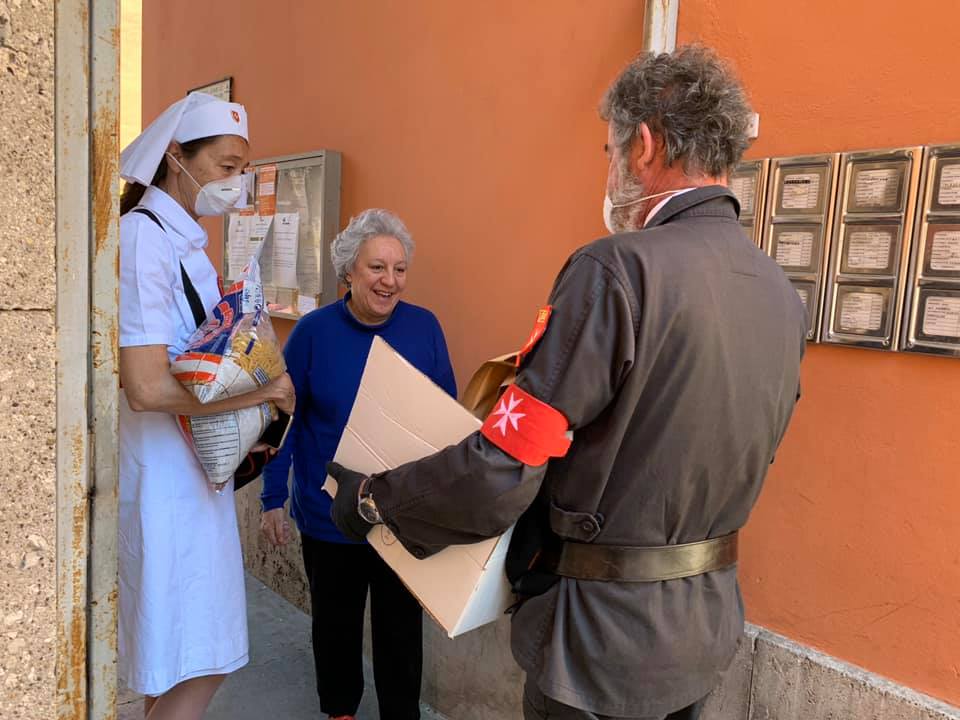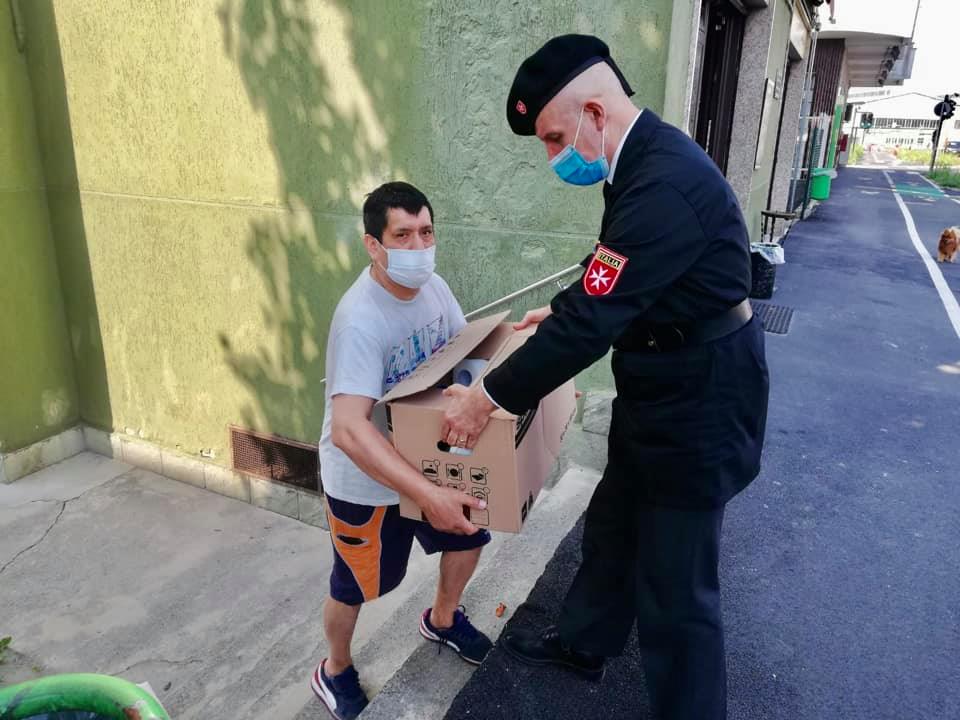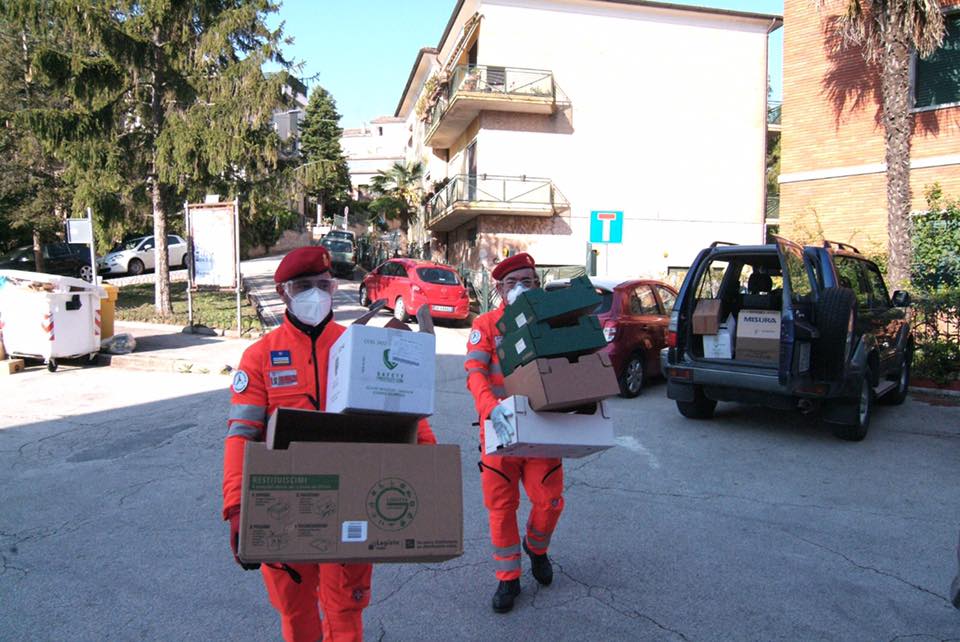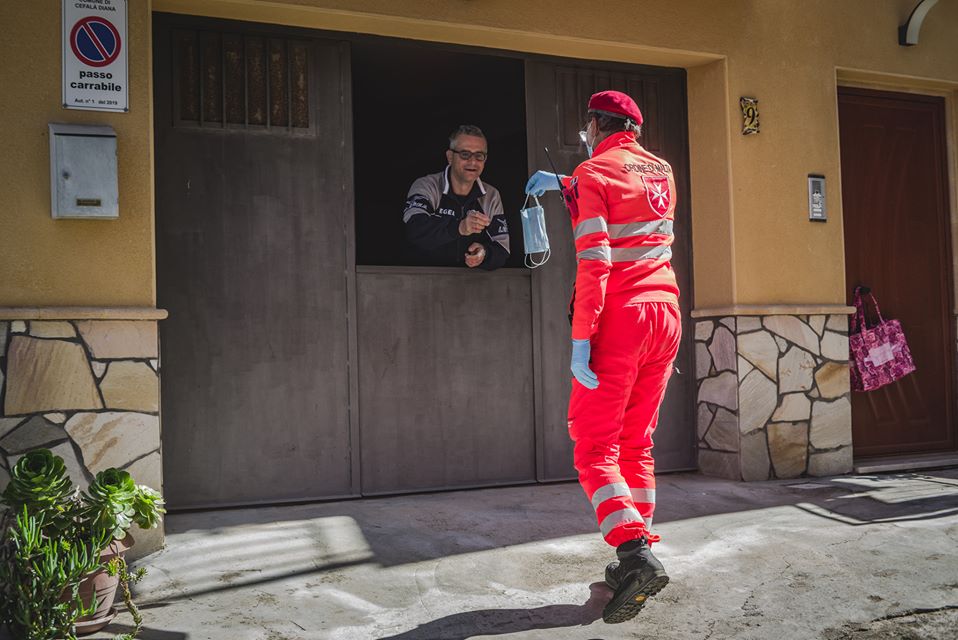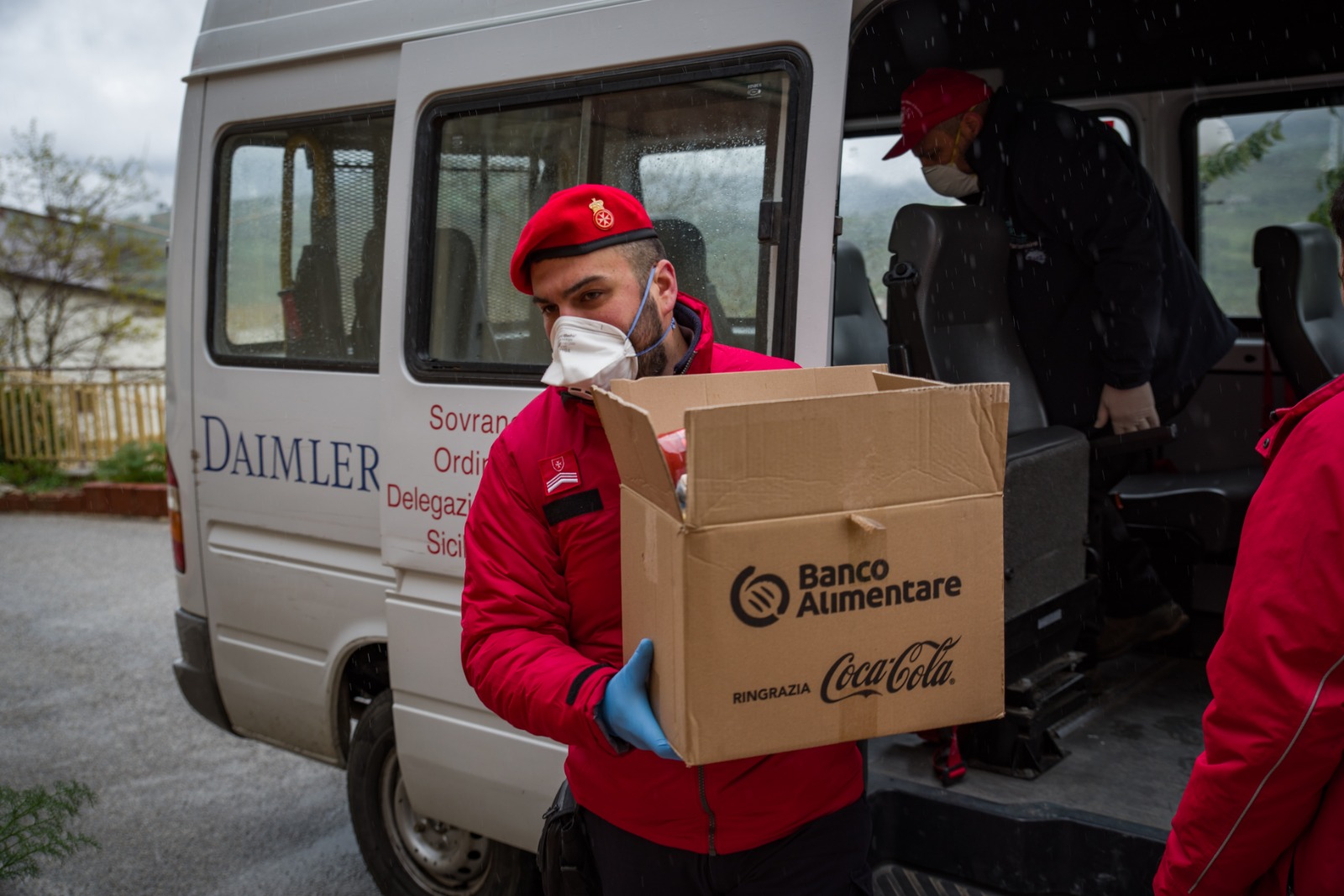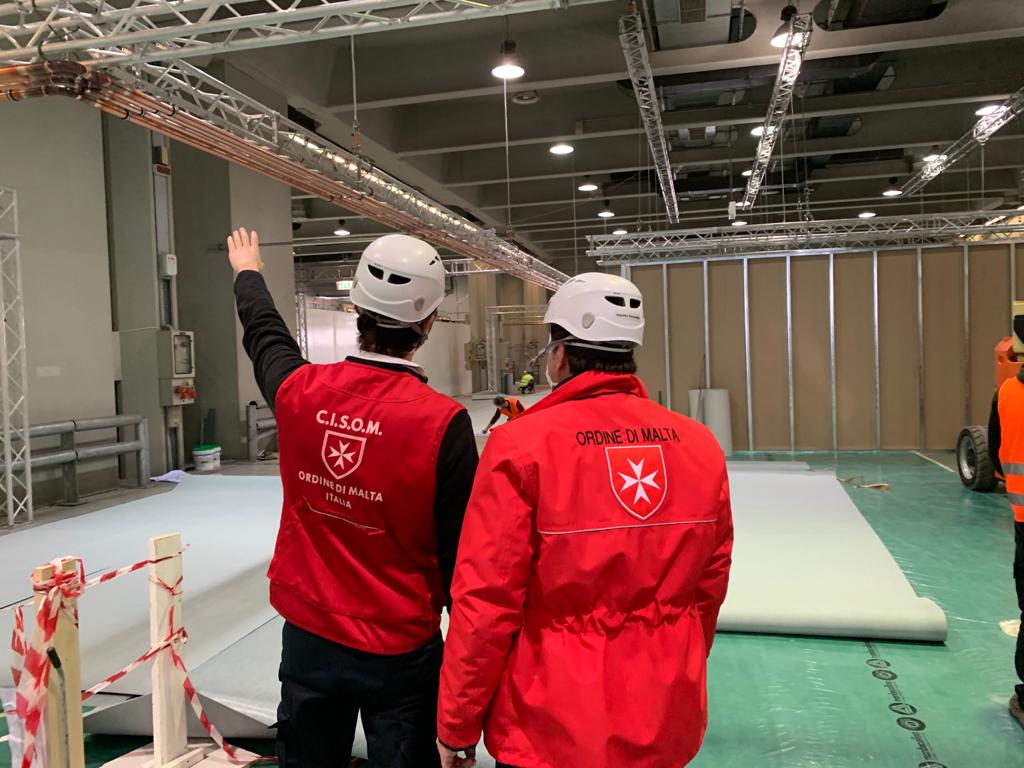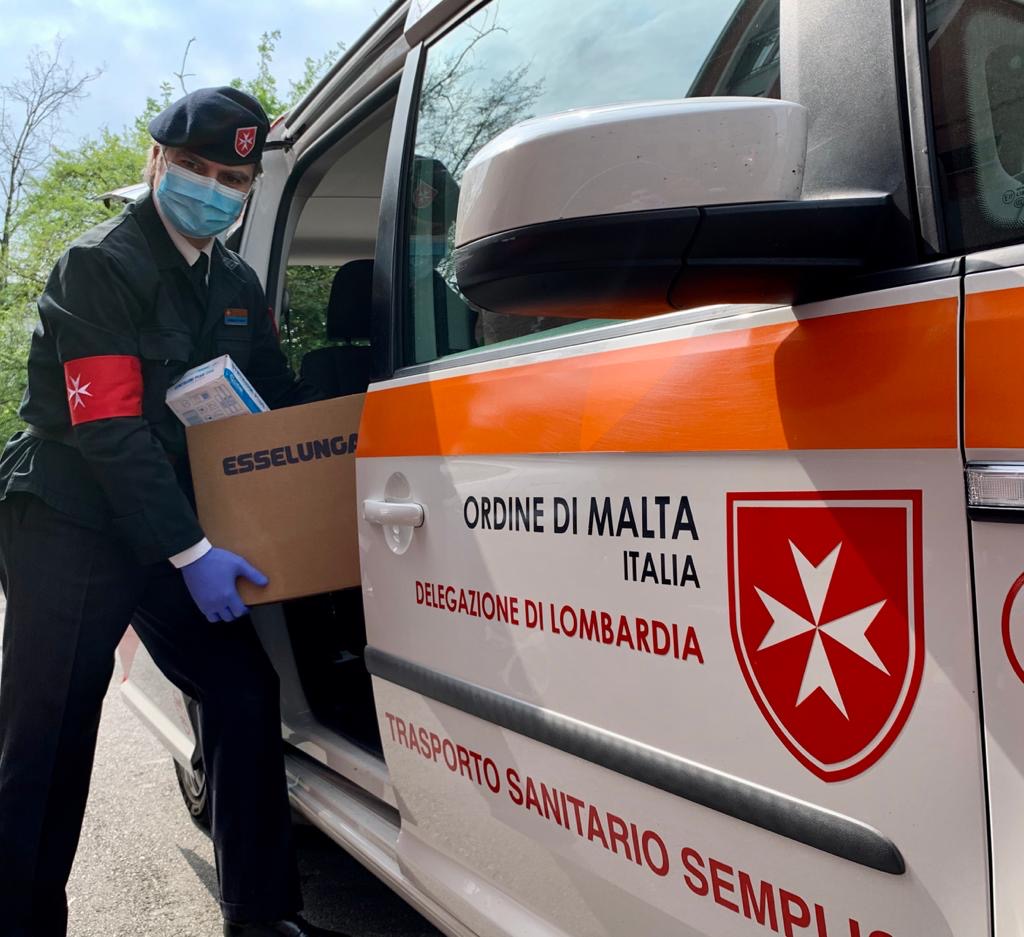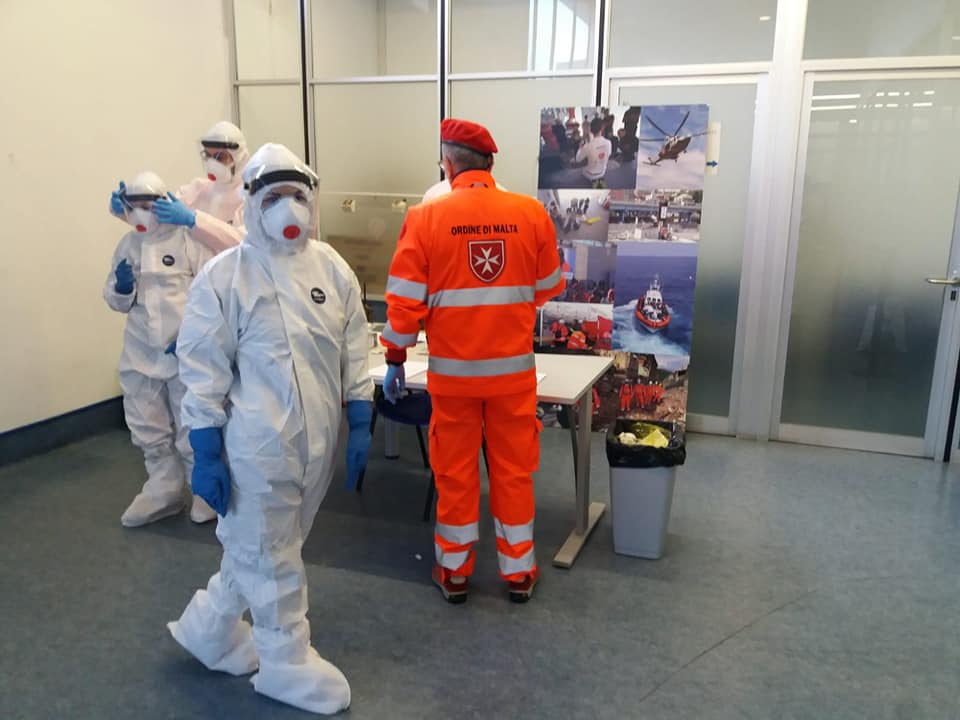During the tragic experience of Covid-19, the Order of Malta has faithfully interpreted the essence of its Christian existence, expressed as “dedication to others”. Italy was the first western country to be affected in mid-February. On 30 April, barely two months after the first case was diagnosed, there were already 205,463 people affected, 18,149 hospitalized, 1,694 in intensive care and 27,967 deaths. A dramatic number that has now risen to over 37,000 deaths, albeit the general situation has improved thanks to more focussed treatment. During this time there was not only the health issue but also the infinite “necessities” that were still ongoing. The entire map of human needs had remained unchanged or even increased, but it was the surrounding situation, characterised by an absolute and hitherto unknown “human rarefaction”, that had altered. People were shut up in their homes, more worried about what could happen to them or to their dear ones than the needs of the “least”.
The Order of Malta replied in a truly extraordinary manner to this situation, with its volunteers working under the banners of the Grand Priories or Delegations, the Military Corps or Italian Relief Corps – CISOM, placing themselves at the service of the country and of those asking for any kind of assistance.
As soon as the emergency began, it was necessary to ensure that national movements did not spread the contagion. At the request of the State, volunteers from CISOM, Military Corps and some Delegations started health-screening actions. First in two airports (Rome and Milan) which then became nineteen; then in some of the larger ports, one or two railway stations and the Rome and Milan metro. Later on, they were also before the Naples Courts and municipal offices in various cities as well as prisons. The same screening action was set up in front of hospitals such as the “Di Venere” in Bari, that of Schio (VI) and first of all the Order of Malta’s St. John Baptist hospital in Rome, which in the meantime had done everything necessary to protect its staff and Our Lords the Sick from Covid-19 and to prepare beds with the appropriate instruments for treating those who had caught the virus. In addition, the Military Corps mounted two inflatable tents in the “Bianchi” Care Home in Naples and others in the Fatebenefratelli-Sacco Hospital in Milan for Covid-19 post-discharge care.
The same Military Corps set up a field hospital in Crema where its health personnel worked alongside the Cuban medical brigade in assisting Covid-19 patients. With a constant rotation, for a lengthy period the Order of Malta’s Ligurian Delegation, CISOM and the Military Corps managed the hospital-ship “Splendid” (moored in the port of Genoa) capable of accepting 400 post-Covid-19 patients. The Order’s chaplains and health teams of all the Order’s bodies worked on this ship, and especially those of the Italian Association’s Genoa clinic.
In the space of a few weeks, the specialized hospital for Covid-19 patients was set up in the Fiera di Milano with the help of CISOM and Lombardy Delegation volunteers. The Order of Malta’s Italian Relief Corps subsequently created the Civitanova Marche Covid Hospital, engaging some 100 of its volunteers for three weeks. The Sud Marche Delegation, the Military Corps and the health personnel of the Italian Association also cooperated in this undertaking.
Overall, during these weeks and thanks to their widespread presence nationwide, the Grand Priories, the Order’s Delegations, CISOM and the Military Corps were present in hundreds of Italian municipalities, guaranteeing tens of thousands of vulnerable families both religious and humanitarian assistance, ranging from the supply of medicines and food, to home delivery services, the transport of thousands of people unable to move independently and the distribution of thousands of masks and individual protection devices. During the entire emergency period, services to rough sleepers and families experiencing economic hardship were implemented and extended nationwide, fund-raising was organised that involved the same volunteers, and shower facilities and soup kitchens were reopened or continued in safety conditions.
The ten thousand days that CISOM volunteers worked to combat the pandemic included some thousand days their psychologists dedicated to listening on the Ministry of Health’s national psychological emergency hotline set up in cooperation with the National Civil Protection Department. A similar service was also offered by the Delegations of Genoa (in cooperation with the region), Naples, Catania and Venice that has also assisted Alzheimer patients through a remote cognitive stimulation system via tablet.
In Rome, the soup kitchen service usually offered at the Termini railway station continued to operate albeit with different methods. Again in Rome, there was no interruption to a historic soup kitchen, the “Cucine Economiche del Circolo di San Pietro” established by Pope Pius IX in 1877, kept up even during the two world wars. In Liguria, a weekly shopping delivery service continued for 85 elderly in an institute; in east Emilia the same service was offered for 70 people in a care home; in Messina, 50 families in difficulty were assisted, guaranteeing them food for at least three weeks during look-down; in Portici (Naples), in cooperation with the Military Corps, 2.5 tonnes of groceries and hygiene kits were donated, transported and then distributed to the population, and similar activities were carried out in practically every Delegation in Italy, ranging from the distribution of food vouchers to the home delivery of groceries or medicines.
In Bolzano, instead, regular telephone calls to Our Lords the Sick were organized as well as material support for some families whose breadwinner had died from Covid-19; in Sardinia, a telephone consultancy service was set up to help access the national health service; in Catania and Venice, a hospital transport service was offered for those who had to undergo undeferrable therapy; in Naples, in collaboration with the local health office, Covid-19 tests were also carried out; in Tropea, five wheelchairs and 300 pyjamas were donated to a Care Home. And since Covid-19 also affected Holy Easter, the Siracusa and Marche Sud Delegations distributed easter eggs to the children of assisted families. Finally, the Military Corps, thanks also to STMicroelectrics Foundation, distributed some 400 PCs and laptops to children who had to study at home in various Sicilian municipalities and in 10 schools.
What the thousands of members and volunteers have achieved during these difficult months demonstrates that the passage of time, the altered context and the eruption in the world of new and multiform cultures have done nothing to change the charisma and original spirit of the Order of Malta and its dedication to those in difficulty.








